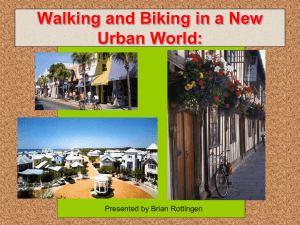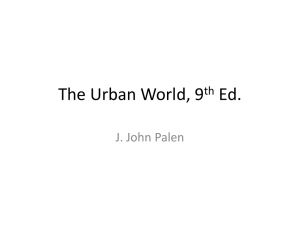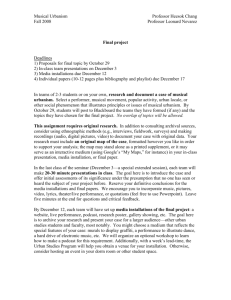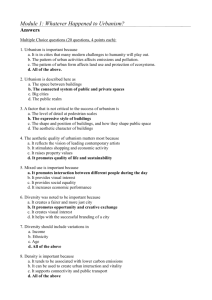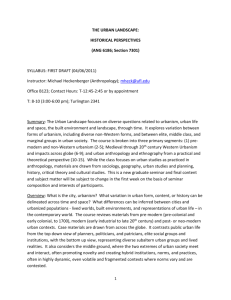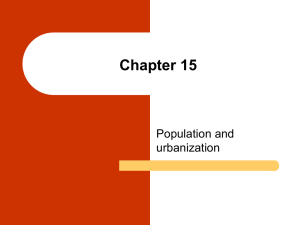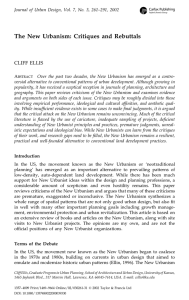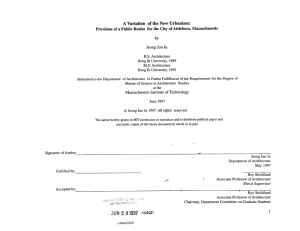Document 11101744
advertisement
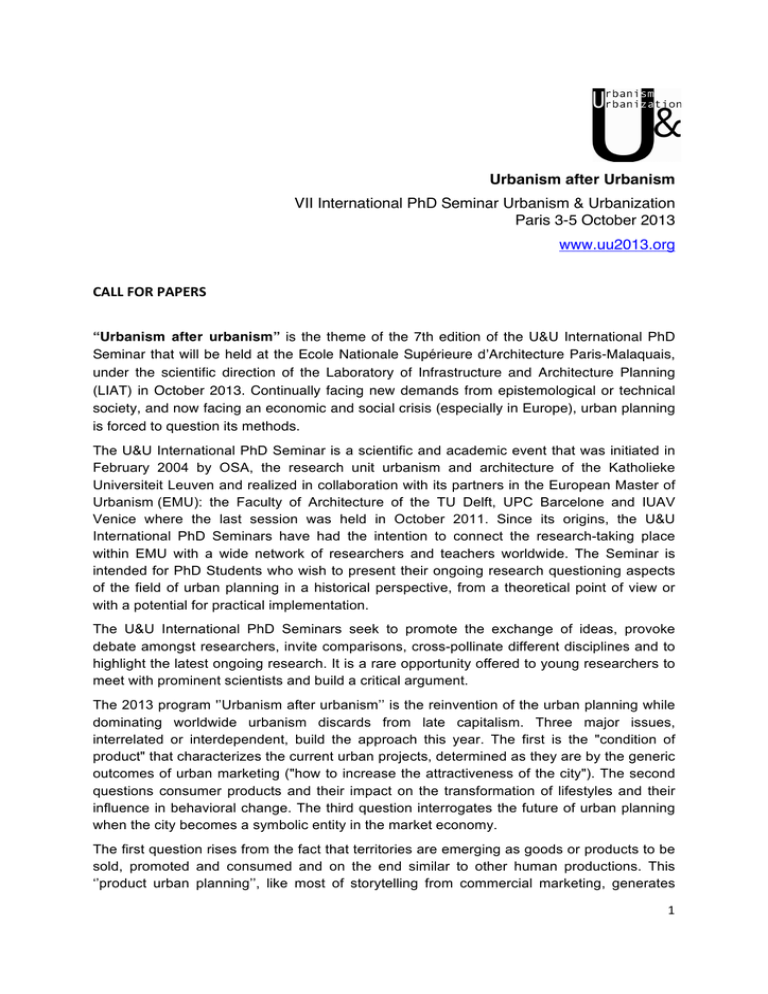
Urbanism after Urbanism VII International PhD Seminar Urbanism & Urbanization Paris 3-5 October 2013 www.uu2013.org CALL FOR PAPERS “Urbanism after urbanism” is the theme of the 7th edition of the U&U International PhD Seminar that will be held at the Ecole Nationale Supérieure d’Architecture Paris-Malaquais, under the scientific direction of the Laboratory of Infrastructure and Architecture Planning (LIAT) in October 2013. Continually facing new demands from epistemological or technical society, and now facing an economic and social crisis (especially in Europe), urban planning is forced to question its methods. The U&U International PhD Seminar is a scientific and academic event that was initiated in February 2004 by OSA, the research unit urbanism and architecture of the Katholieke Universiteit Leuven and realized in collaboration with its partners in the European Master of Urbanism (EMU): the Faculty of Architecture of the TU Delft, UPC Barcelone and IUAV Venice where the last session was held in October 2011. Since its origins, the U&U International PhD Seminars have had the intention to connect the research-taking place within EMU with a wide network of researchers and teachers worldwide. The Seminar is intended for PhD Students who wish to present their ongoing research questioning aspects of the field of urban planning in a historical perspective, from a theoretical point of view or with a potential for practical implementation. The U&U International PhD Seminars seek to promote the exchange of ideas, provoke debate amongst researchers, invite comparisons, cross-pollinate different disciplines and to highlight the latest ongoing research. It is a rare opportunity offered to young researchers to meet with prominent scientists and build a critical argument. The 2013 program '’Urbanism after urbanism’’ is the reinvention of the urban planning while dominating worldwide urbanism discards from late capitalism. Three major issues, interrelated or interdependent, build the approach this year. The first is the "condition of product" that characterizes the current urban projects, determined as they are by the generic outcomes of urban marketing ("how to increase the attractiveness of the city"). The second questions consumer products and their impact on the transformation of lifestyles and their influence in behavioral change. The third question interrogates the future of urban planning when the city becomes a symbolic entity in the market economy. The first question rises from the fact that territories are emerging as goods or products to be sold, promoted and consumed and on the end similar to other human productions. This ‘’product urban planning’’, like most of storytelling from commercial marketing, generates 1 with its consumer aspects of seduction-accession values a conformist lifestyle that is identical throughout the “urban planet”. How to define the future of urbanism after this surrender to marketing? How to query the new situation of urban planning, with what approaches and methodology, what reflection will develop to target an emancipatory planning that has the capacity to trigger or transform lifestyles? The second question enquiries the dematerialization of the city caused by the development of self-phones and other lines of tablet computers that deliver real-time data and provide, as regards the displacements, a different perception and organization of daily life. If the geographic space is substituted for the dual space of a new "augmented reality", operated by networks and objects using IT, then what concepts and planning tools must be invented, or are in the process of being invented? How to analyze more generally this urban and next spatial and material conditions shift towards human conditions, the individual person and no more towards the city? The third approach makes to think on the loss (being announced, in process, completed, etc.) of the functional and administrative value of "the city" in favor of urban areas, and "communities" of all kinds: municipalities (administratively), gated communities (urbanically), virtual communities (individually, emotionally or professionally). We can wonder which new entities have been now replacing cities in the roles they held before. This threefold questioning raised above calls for presentations that can take various forms, investigation into historical methods of urban analysis or investigation in terms of project and critical theory. In turn this can open up other questions that aim to document and understand the changes underway in the theory and practice of planning. SHORT AND FULL PAPERS The seminar invites full papers that present a coherent piece of research or dissertation chapter, as well as short papers that address methodology, research question or articulate a starting point for PhD research. Full papers (4000-8000 words) will be organized in thematic sessions. Short papers (2000-2500 words) will be organized in thematic workshops. A selection of seminar contributions will be published. ABSTRACT GUIDELINES PhD candidates interested in presenting a paper should submit an abstract of maximum 400 words by April 30th. The scientific committee, taking into account the interest of the themes proposed, will select the papers to be presented during the seminar by July 5th. Upon selection of the various contributions, we will invite respondents in function of the subject of the papers submitted. The selected papers will be submitted in a final version to the scientific committee and to each respondent before September 15th. Abstracts should be sent via email to: urbanism.urbanization@paris-malaquais.archi.fr Please include the following information: Full name, affiliation, e-mail-address, thesis supervisor, working title of dissertation, anticipated date for thesis defense. Please, indicate as well if you intend to submit a full paper or a shorter workshop paper, typical for researchers in the early stages of their PhD discussing research question and thesis set up. 2 IMPORTANT DATES Call for papers launch: 25 March 2013 Deadline abstracts: 30 April 2013 Notification of acceptance: 5 July 2013 Full paper due: 15 September 2013 SCIENTIFIC COMMITTEE Dominique Rouillard, ENSAPM (chair) Luc Baboulet, ENSA Paris Marne la Vallée Michiel Dehaene, KU Leuven Gilles Delalex, ENSAPM Kees Doevendans, Eindhoven University Bruno de Meulder, KU Leuven Han Meyer, TU Delft Miodrag Mitrasinovic, Parsons New School, NY Bernardo Secchi, IUAV Joaquim Sabaté, UPC Barcelona Marcel Smets Paola Viganò, IUAV CONTACT For more information or any questions please contact the organization committee by sending e-mail to: urbanism.urbanization@paris-malaquais.archi.fr 3
